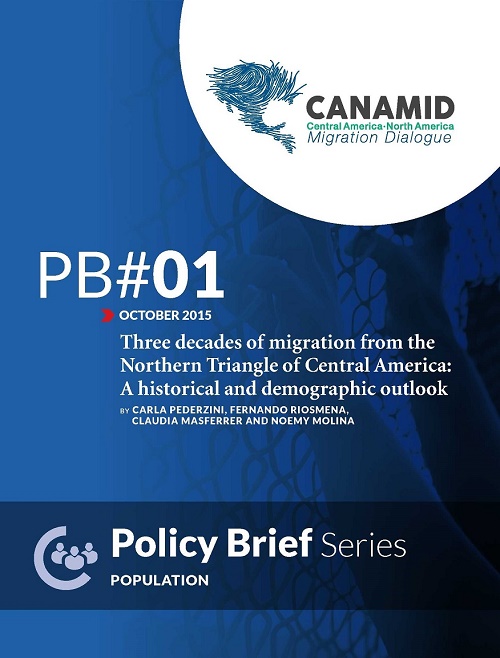
In spite of a major economic slowdown in 2007-2009 and an increasing escalation of immigration and border enforcement in both the United States and Mexico over the last decade, unauthorized migration from the Northern Triangle of Central America (NTCA, i.e., El Salvador, Guatemala and Honduras) has persisted. These trends are puzzling and stand in contrast to those of unauthorized migration from Mexico, which has decreased over the last seven years. To understand these trends, we briefly describe the history of international migration dynamics from the NTCA countries, discussing their main drivers, features, and demographic profile. We explain the role of economic and political contexts of emigration from each NTCA nation, as well as reviewing the immigration policies and the contexts of reception in the United States and Mexico; we then relate this to the socio-demographic profiles of the NTCA population in both countries. The continued history of political turmoil, violence, and uneven and unstable economic development –along with the growth and strengthening of migrant networks– largely explains the continuation of sustained emigration flows from all three NTCA nations despite the rise of unwelcoming contexts of reception and transit in Mexico and the U.S. Among the different recent issues, we discuss the recent rise in the flow of unaccompanied minors, and the respective roles of the sending, transit, and destination countries in driving the continuation of these flows. Finally, in light of this historical and demographic overview, we offer a set of basic policy recommendations for the management of the different migration flows, and the establishment of new data and research needs to better understand their drivers and future trends.
ISBN: 978-607-486-336-9
Suggested citation:
Pederzini, Carla, Riosmena, Fernando, Masferrer, Claudia, and Molina, Noemy (2015) Three decades of migration from the Northern Triangle of Central America: A historical and demographic outlook”, CANAMID Policy Brief Series, PB01, CIESAS: Guadalajara, Mexico. Available at: www.canamid.org